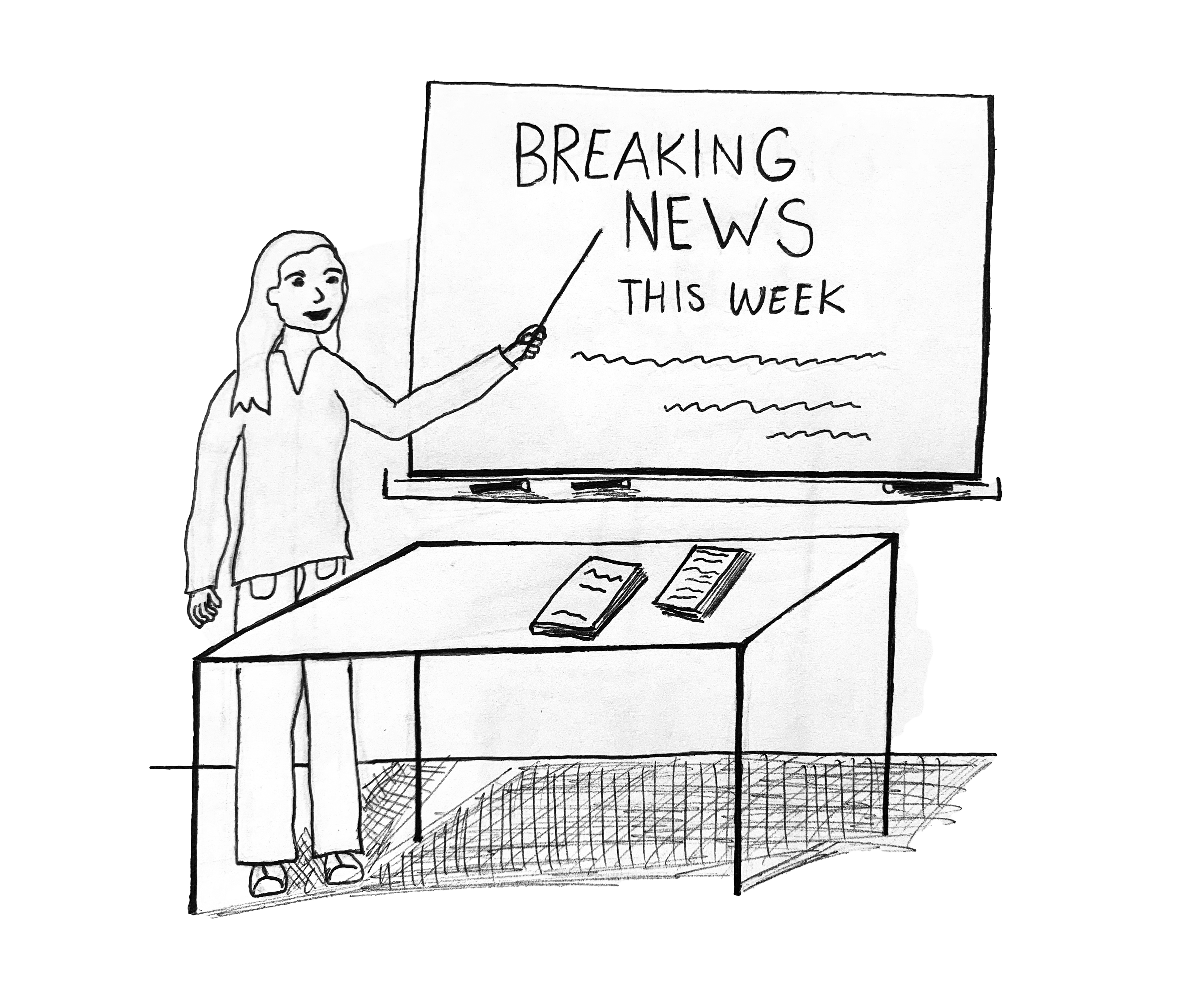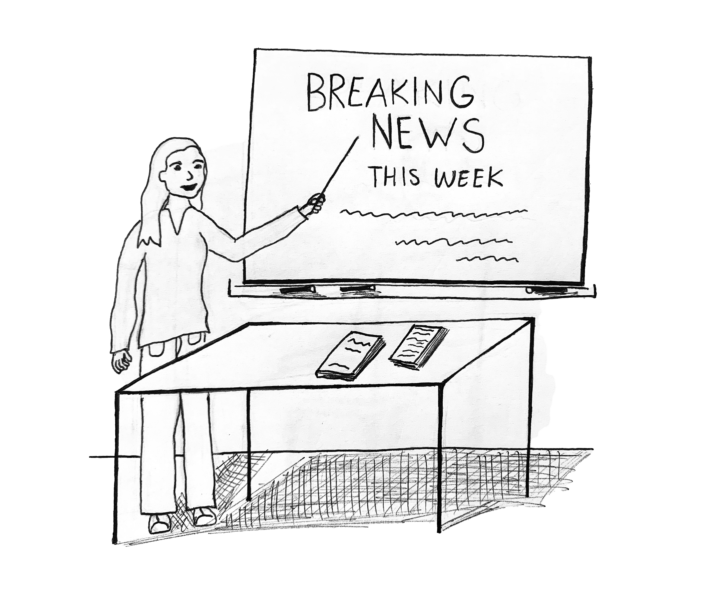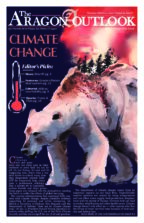
In today’s world, the news has been spreading at lightning speed, leaving trails of misinformation as it blends fact with fiction. In times such as these, how can students connect what they’re learning in their social studies classrooms to the world outside?
All of Aragon’s history classes discuss current events to some extent. Freshman Ethnic Studies classes keep up with current affairs by watching Flocabulary videos. Flocabulary discusses global current events through rap and visuals once weekly, allowing students to have brief conversations about current events.
However, current events are more commonly discussed in upperclassmen history classes.
“A good way to [teach current events] is [to] ramp it up a bit as the years go,” said Modern World History teacher Jonathan Felder. “I’m a little wary about having [students] do too much of current events before [senior year], because I don’t think they know enough, which is why I’ve been exposing [current affairs] to [sophomores] in small doses.”
Due to varying degrees of “news media” accuracy among different sources, teachers have resorted to a different method of exposing students to current events.
“We’re a very information-rich society today, especially with social media,” said Advanced Placement U.S. History and Government and Economics teacher Heather Sadlon. “[There are] just so many aspects of news, and there’s no possible way that we can cover everything, but one thing we can teach students is how to be savvy consumers of information and how [to] know what information is reliable.”
”We’re a very information-rich society today”
Discovering the importance of current events can increase students’ interest and curiosity about the world around them. Being aware about current events also helps reinforce duties people have toward their communities, and by extension, the role they play in their country.
“[Learning about current events is] an important part of being a citizen [which is] to know what’s happening around you,” said freshman Taylor Wiedenmann.
Learning about current events in high school could lead to significant changes for the future of the country.
“I’d imagine at least a very small degree that votership … or participation in any government would go up,” said junior Asher Schalet. “If the population is up to date on more events, they’re going to have more of an opinion and so they’re [going to] be more likely to judge the government.”
As seniors prepare to leave high school, understanding the workings of society becomes crucial.
“Learning about current events as a student is very important,” said senior Yossi Moff. ”By the end of high school, we’ll … need to vote or participate in American democracy.”
Learning about current affairs in history classes creates connections between the past and the present, allowing students to anticipate the possibilities of the near future and help them act accordingly as they slowly become adults.
“I would hate to see our country fall into [a situation] where people don’t have the skills to be able to understand the information around them or where we have any kind of limitation on the free and fair press presenting information and transparency in our government,” Sadlon said. “It requires people to be the check on that kind of power and to really understand these policies so that we can all live in a world that we want to live in.”
Today, news spreads from the click of a mere fingertip, making learning about current events more conflicting than ever. By implementing the study of finding accurate information among the various versions of news today and keeping up with current events, students may become educated and aware of real world problems and what role they themselves can have in society.




